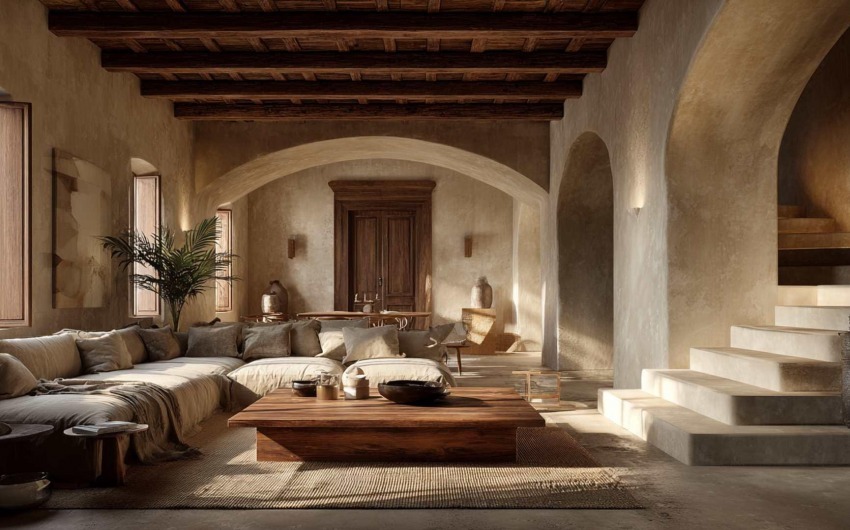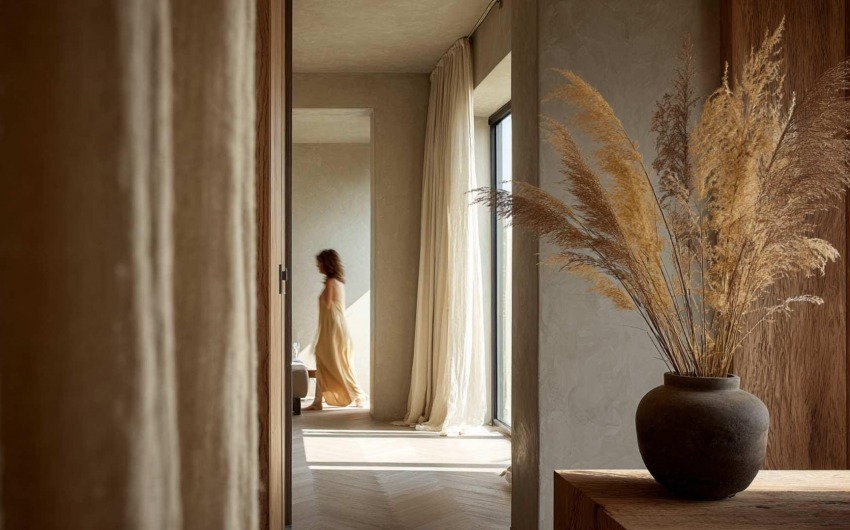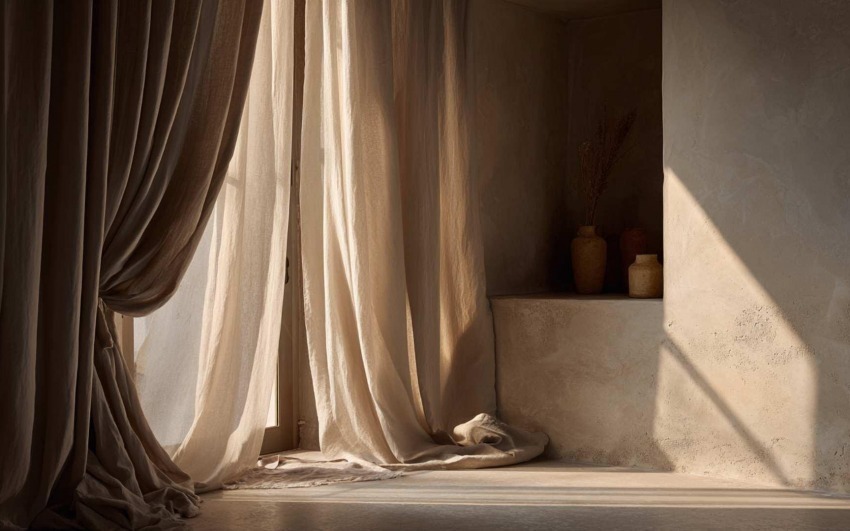10/04/2024
Inspiration from Plants
Plants offer a wide range of organic shapes that can be replicated in furniture and decor. For instance, tables or chairs can be designed to mimic tree branches, creating lightweight yet sturdy structures. Green walls, which bring nature directly indoors, not only improve air quality but also serve as a decorative element. Vases and lamps shaped like petals or leaves give interiors a natural and relaxing atmosphere.
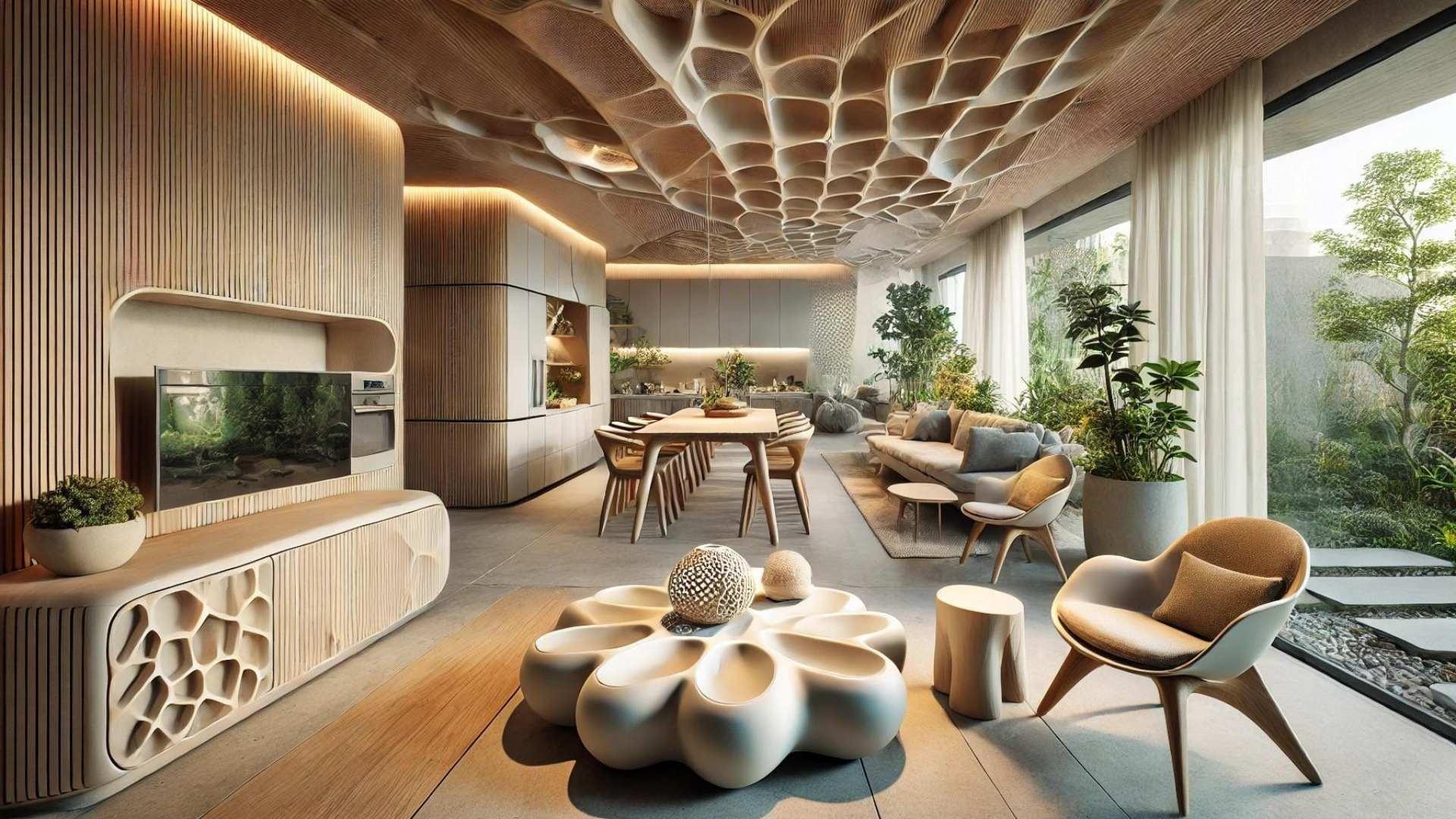
Shells and Marine Structures
Shells and other marine structures provide another source of inspiration for biomimetic design. Their smooth, flowing forms can be translated into furniture, such as chairs, lamps, or coffee tables, creating a fluid and dynamic aesthetic. Natural materials like curved wood or eco-friendly fabrics can be used to recreate these structures in a sustainable way.
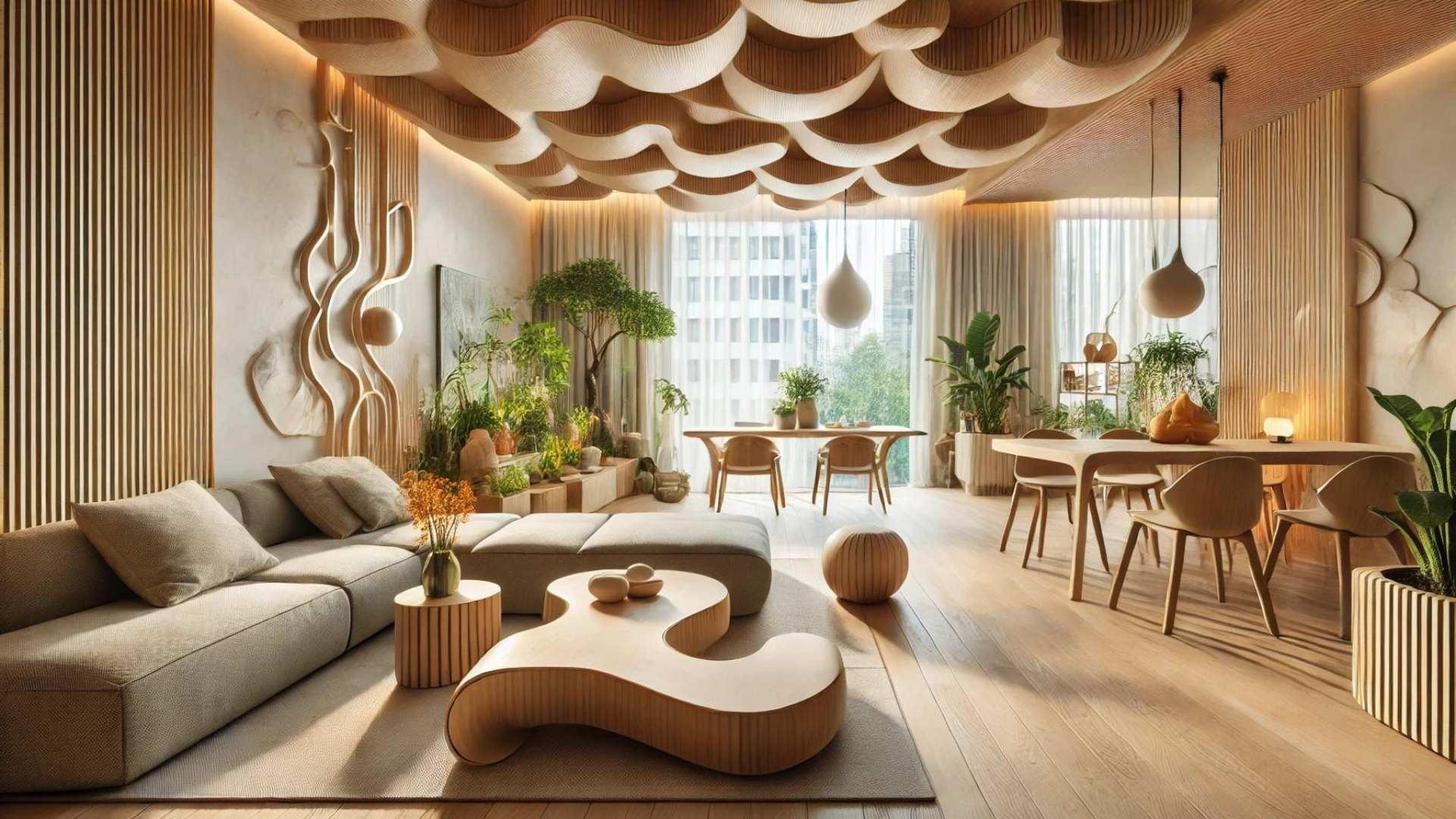
Honeycombs and Natural Geometries
Honeycombs represent another interesting form to replicate in design. Their hexagonal structures are both functional and aesthetically pleasing, ideal for modular shelving, room dividers, or decorative walls. Beyond their geometric beauty, honeycombs offer space-saving and structural support solutions.
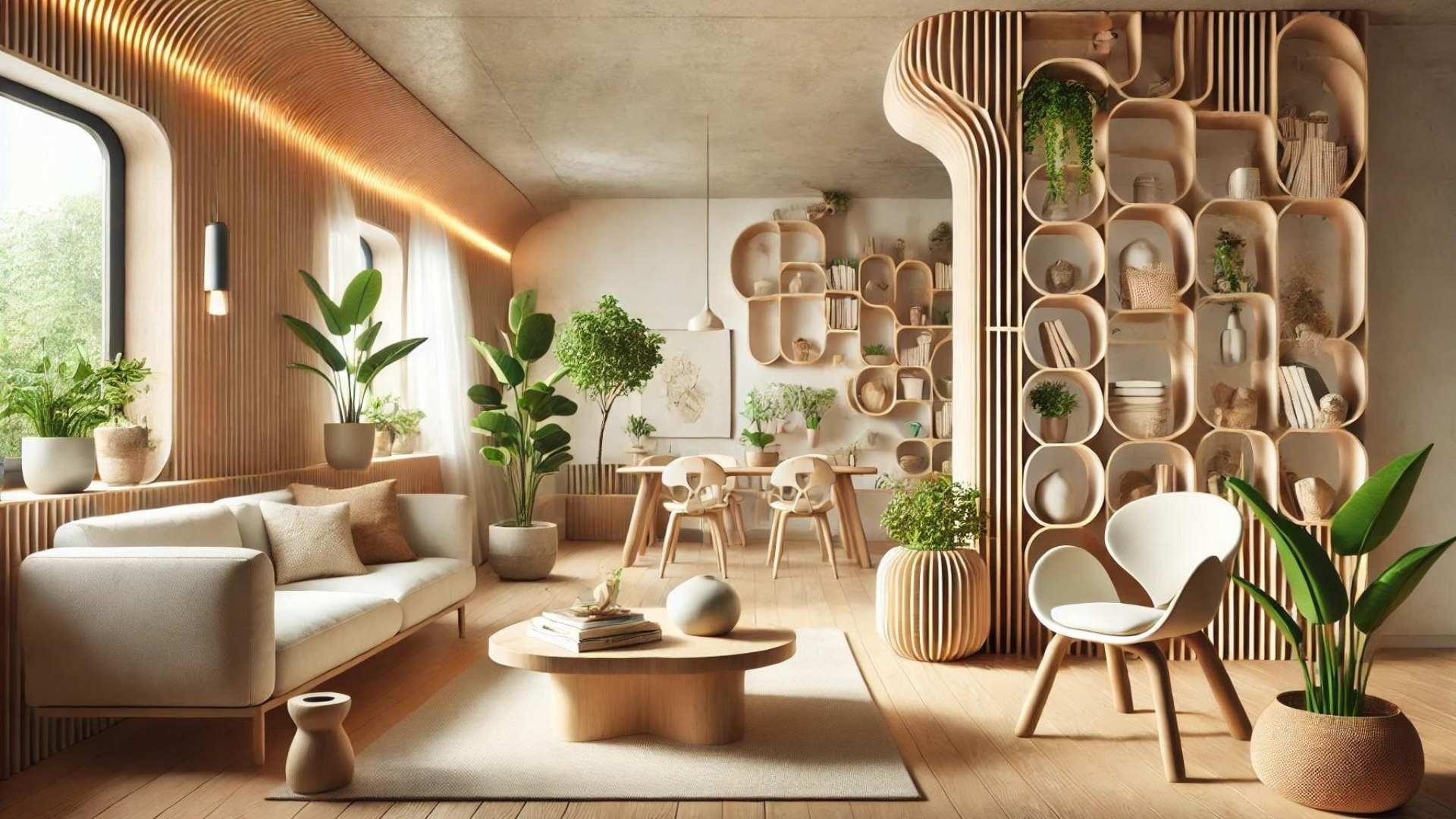
Benefits of Biomimetic Design
Sustainability: Biomimetic design tends to use eco-friendly materials and low-impact production processes.
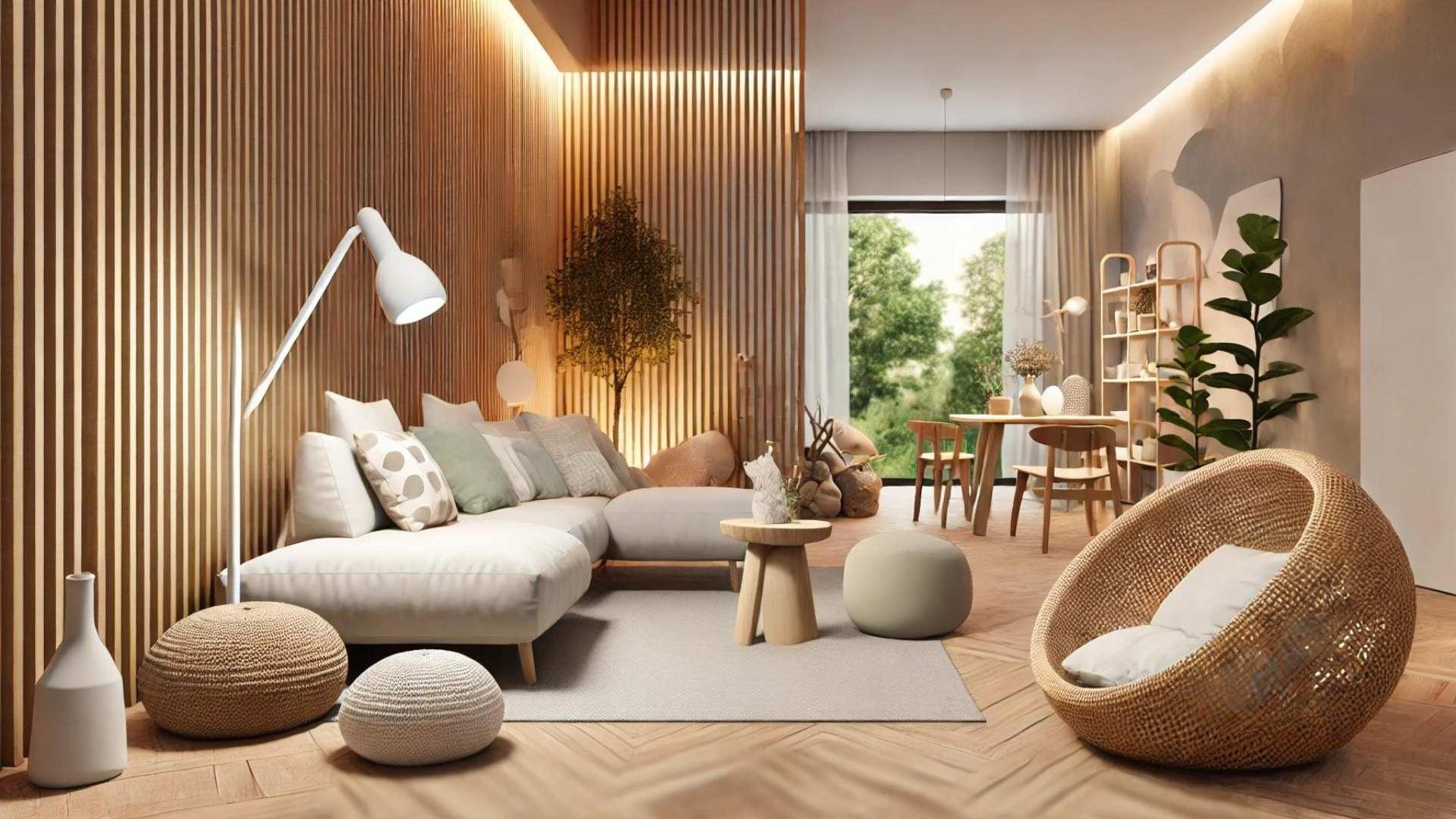
Visual Harmony: Natural forms create a visually relaxing and welcoming environment, in contrast to the rigid, artificial lines of much modern design.
Functionality: Drawing inspiration from nature often leads to smart and functional solutions, such as structural reinforcement inspired by honeycombs.
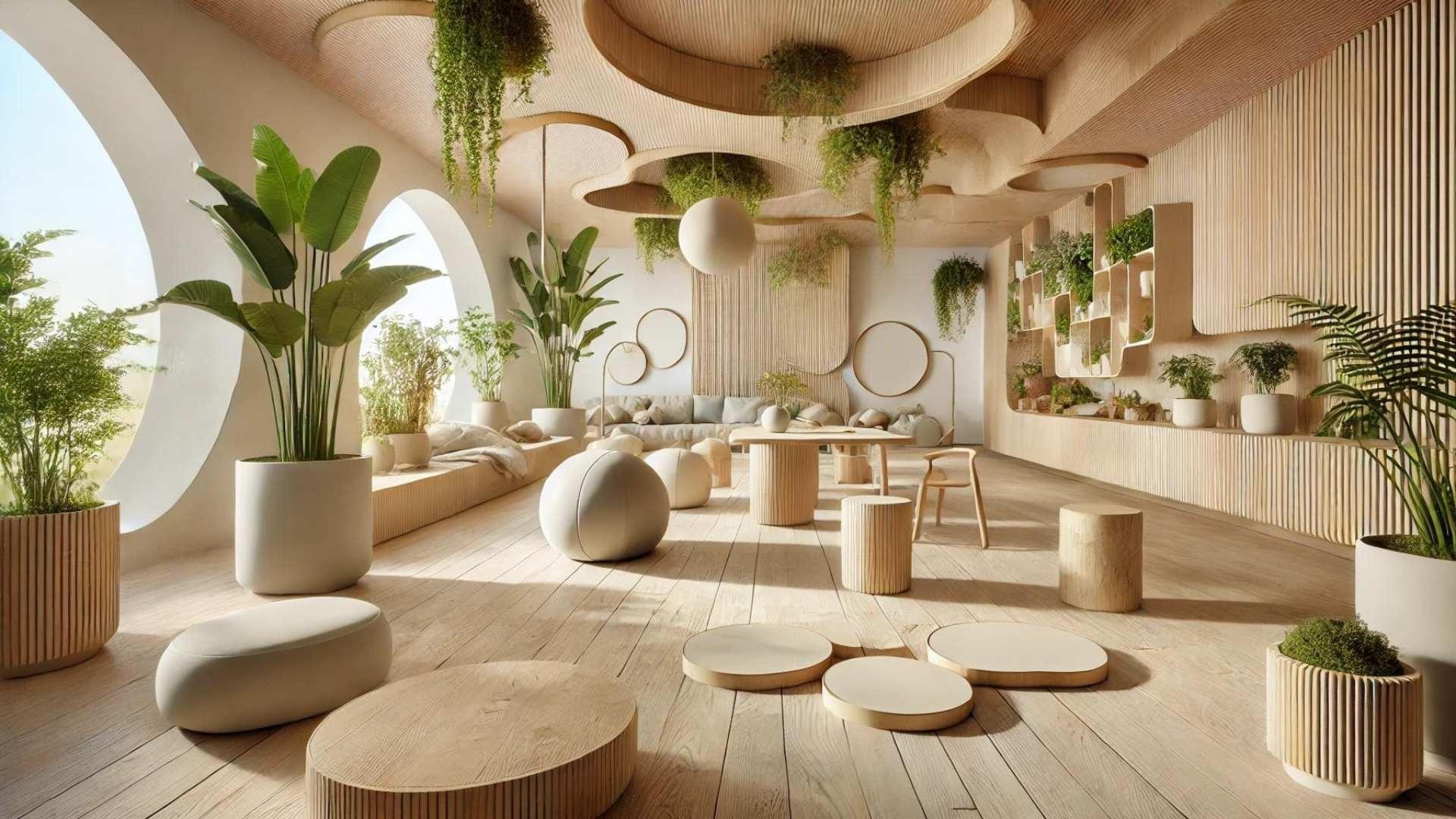
Biomimetic furniture is not just about aesthetics, but a commitment to sustainability and efficiency, bringing a piece of nature into modern homes.
_14077b47db_23.jpg)
Interior Designer since 1985
CEO & Founder, Italian Design in the World
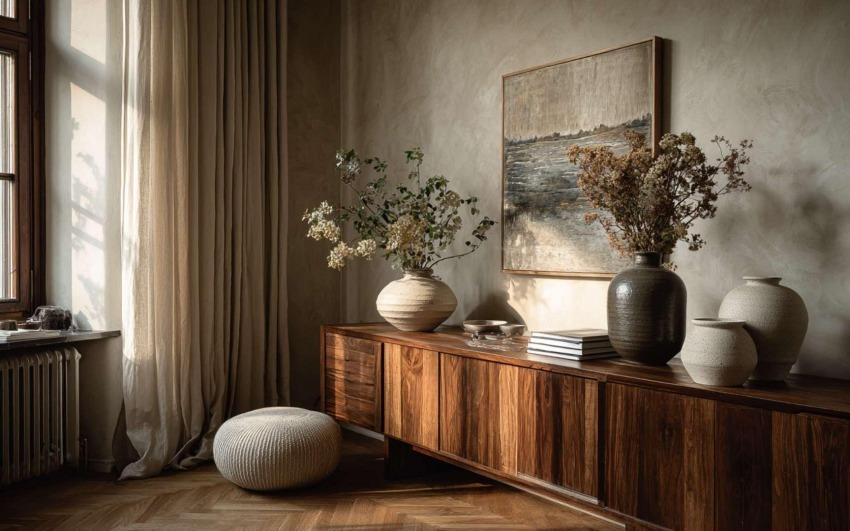
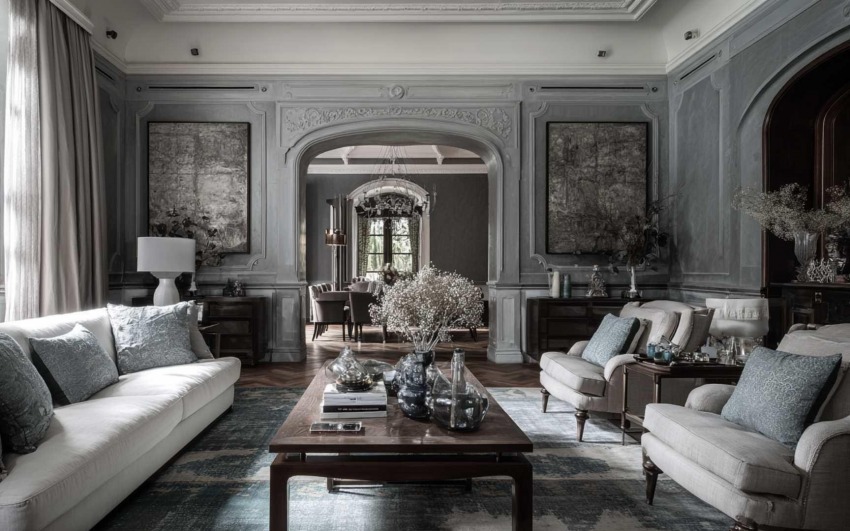
_c49d85500f_642.jpg)
